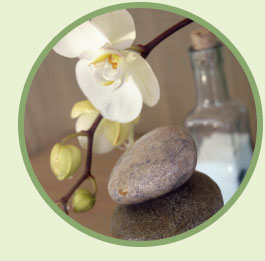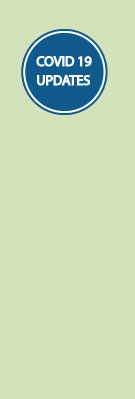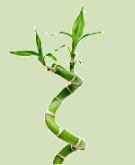|
 Acupuncture Acupuncture
Q: What is acupuncture?
Q: How does acupuncture work?
Q: My pain is better after you put the needle in. Are you injecting drugs in me? Did you put drugs on the needle?
Q: Is acupuncture safe?
Q: Why choose acupuncture?
Q: Do I have to choose between acupuncture and other forms of health care?
Q: What does modern research state about acupuncture’s efficacy?
Q: Is belief necessary for acupuncture to work?
Q: Does acupuncture hurt?
Q: What is a visit like?
Q: How long does a visit take?
Q: How many treatments I do I need?
Q: What is acupuncture good for?
Other:
Q: What methods of payment do you accept?
Q: Will my insurance cover acupuncture?
Acupuncture
Q: What is acupuncture?
A: Acupuncture is the insertion of ultra-fine needles into the body at specific points to treat specific health problems. These points have been used in the East Asia for over 4,000 years. Recently, electromagnetic research has confirmed their locations.
BACK
Q: How does acupuncture work?
A: There are a many theories on how acupuncture works. The biochemical and neurological model maintains that acupuncture works by activating a natural pain-suppression system in the brain. Acupuncture increases the level of endorphins and serotonin, leading to pain relief, enhanced energy and vitality as well as strengthening the body’s immune system. Other theories reported by the National Institute of Health state that acupuncture works on an electromagnetic field in our body. The scientific community has accepted the electromagnetic field since the 1930s.
The Traditional Oriental Medicine model is based on ancient theories of the flow of Qi (vital energy) through a complex network of meridians or channels that cover the body similar to nerves and blood vessels. Many of these meridians are internally connected with specific organs such as the Liver, Heart, Kidney and Stomach. This meridian network influences all body systems including skeletal, muscular, endocrine, circulatory, digestive, respiratory, urinary, reproductive and nervous. Acupuncture adjusts and regulates the flow of Qi in the meridians, restoring the harmonious energetic balance of the body. Recent research found that the electromagnetic field in our body correlates with the meridians that acupuncturists use. Studies have discovered that stimulating points along these “meridian” channels enables the electromagnetic signals to be relayed at a greater rate than under normal conditions.
BACK
Q: My pain is better after you put the needle in. Are you injecting drugs in me? Did you put drugs on the needle?
A: No, the needles used in acupuncture are plain stainless steel. Acupuncture is a drug-free treatment. You are feeling better because the needle is activating your own natural healing mechanism.
BACK
Q: Is acupuncture safe?
A: Absolutely. When performed by a competently trained, licensed professional, acupuncture is very safe. Manhattan Community Acupuncture exclusively uses FDA-approved, sterile, disposable needles to prevent any risk of infection. Prior to needling we sterilize the area with alcohol. In addition, because the treatment is drug-free, you do not have to worry about possible adverse reactions.
BACK
Q: Why choose acupuncture?
A: Acupuncture is relatively free of side effects. Drugs and surgery can cause negative side effects and be quite expensive. Traditional Oriental Medicine is a cost-effective treatment that has proven itself effective over the course of thousands of years. Acupuncture facilitates your body to self-heal without the use of drugs or surgery. It is a “holistic” form of medicine, meaning that the “whole” person is treated, not just isolated systems or parts of the body.
BACK
Q: Do I have to choose between Traditional Oriental Medicine and other forms of health care?
A: Acupuncture is very compatible with other forms of health care. Manhattan Community Acupuncture works in conjunction with all sorts of other practitioners including medical doctors, chiropractors and physical therapists. In fact acupuncture greatly enhances the effect of other therapies, and helps to reduce unwanted side effects from various drugs. Please inform us of any other health care systems and/or medications you are currently using so that you can receive the maximum benefits from all of them.
BACK
Q: What does modern research say about acupuncture efficacy?
A: In 1997, the U.S. National Institutes of Health (NIH) issued a consensus report that concluded "The data in support of acupuncture are as strong as those for many accepted Western Medical therapies…There is sufficient evidence of acupuncture's value to expand its use into conventional medicine and to encourage further studies of its physiology and clinical value." Please click here to read some research studies about acupuncture.
BACK
Q: Is belief necessary for acupuncture to work?
A: No. Beneficial effects of acupuncture have been demonstrated on animals and children, as well as on adults who have never received acupuncture before. Other studies have shown that acupuncture effects are not dependent on psychosocial variables. As with any medical modality, a positive and open attitude towards healing can only serve to reinforce the therapeutic outcome.
BACK
Q: Does acupuncture hurt?
A: The most common misconception about acupuncture is that every treatment will feel like getting a series of flu shots. Fortunately, since the diameter of an acupuncture needle is extremely thin (about the thickness of a human hair) the vast majority of people experience little to no discomfort. Most people report that they feel a slight pinch upon insertion, and those who were apprehensive relate that they were pleasantly surprised to find their imagination had gotten the best of them.
During the treatment, the acupuncturist may stimulate the needles manually. You may feel a sensation of tingling, numbness or dull throbbing. These feelings are normal and indicate that your body’s healing powers have been activated. This is NOT the feeling of the needle hitting a nerve. Nerve pain is completely different than acupuncture sensations. With acupuncture you may also feel a profound sense of relaxation, or even fall asleep!
If you are apprehensive about getting acupuncture, tell us and we will work with you to make the experience as comfortable for you as possible.
BACK
Q. What is a visit like?
A: During an acupuncture session, needles will be inserted. The number of needles inserted depends on the condition. We generally tend to insert anywhere from 2-12 needles in the body (average 4-8). They remain the body for about 30 minutes up to an hour, depending on the individual.
It’s best to arrive for a treatment after eating a small meal or snack. Please don’t arrive on an empty stomach. You may want, if possible, to wear comfortable clothing such as sweatpants, though this is not required. If you are asked to remove any articles of clothing during a treatment, we will do our best to ensure your modesty and comfort.
BACK
Q: How long does a visit take?
A: The initial consultation/acupuncture treatment will take approximately 1 hour to 1 hour and 15 minutes. The first visit will comprise of an intake and Traditional Oriental Medicine analysis consisting of things such as palpation of meridians throughout the body, tongue and pulse analysis. Subsequent visits should take about 30-60 minutes. It’s best to arrive for a treatment after eating a small meal or snack.
BACK
Q: How many treatments do I need?
A: Each person is unique. Some people respond more quickly to acupuncture than others. Acute conditions, such as a sprained ankle, can be cleared in as little as one treatment, while chronic conditions can take longer. We will discuss treatment plan during your first visit. A positive attitude will shorten the number of treatments needed as well. The right mindset is invaluable in healing.
BACK
Q: What is acupuncture good for?
A: See Conditions Treated.
Other:
Q: What methods of payment do you accept?
A: In order to minimize contact due to Covid-19, you will have to enter a valid credit card number to book your appointment. The card will be charged AFTER your appointment. If you do not have a credit card please call 212-405-6126 to discuss other arrangements. We regret that we do not currently participate in health insurance plans directly; however, we will provide you with appropriately coded medical superbills and supportive documentation that you can submit to your insurance company for reimbursement. Please check with your provider for details about your particular plan.
BACK
Q: Will my insurance cover acupuncture?
A: Some insurance companies do cover acupuncture. We will be happy to provide you with properly coded medical superbills so that you can submit them to your insurance company in order for reimbursement.
BACK
|














 Acupuncture
Acupuncture